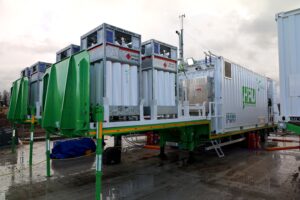New infrastructure investments in the short and medium term, should focus on accelerating the roll-out of both full-fibre and 5G communications infrastructure, and greater active travel (cycling and walking) provision, according to a new report by the Infrastructure Client Group and Institution of Civil Engineers (ICE).
The joint White Paper, Covid-19 and the new normal for infrastructure systems, follows a comprehensive consultation with infrastructure professionals and recommends a series of steps to maximise the value of infrastructure investment and ensure challenges such as decarbonisation, regional inequalities and economy-wide productivity are tackled as well as the recovery from the pandemic.
The paper said that long-term planning should still be driven by the UK’s existing long-term challenges, including population growth, meeting the 2050 net-zero emissions target and the UN Sustainable Development Goals.
But it said to improve approaches to long-term planning, corresponding investment should be made in digitalisation of new and existing infrastructure assets alongside growing the digital skills necessary for that transition. It also said that uture infrastructure forecasting should use scenarios to navigate the current period of uncertainty.#
The white paper also calls for increased funding to be made available for the National Digital Twin Programme5 and the creation of digital twins should be mandated for all major projects and programmes.
It also said to support increased use of more productive, enterprise-based delivery models, a standardised scorecard should be developed to prioritise, identify and weight non-financial outcomes for major projects and should-cost modelling should be encouraged to inform procurement,
with the potential for this to be mandated.
Also, it makes the recommendation that public procurement and funding models should become more intelligent and outcomes-based, so that communities and businesses get the infrastructure that will deliver the
greatest social, economic and environmental benefits.
Finally, it says, to support a shift towards leadership based on a systems-integration skillset, further study should be conducted to identify the strategies, structures and people needed to deliver major infrastructure systems interventions in the future, learning lessons from recent projects
Paul Sheffield, President of the Institution of Civil Engineers, said: “Thanks to the strong response to our call for evidence, we’ve been able to highlight an expectation that there will be no drastic shift as a result of Covid-19. Instead it has merely shone a light on priorities we have always known about; regional inequalities, the pressing challenge of decarbonisation and the need to improve productivity particularly through digital adoption.
“There are real opportunities to become more intelligent and outcomes-focused in how we deliver infrastructure, in order to unlock better value for money and reduce carbon. We will be driving forward the four strategic enablers identified by this work to capitalise on the unique opportunity to reshape how infrastructure is delivered in the public’s name.”
Nirmal Kotecha, Chair of the Infrastructure Client Group Management Board, said: “It was imperative we conduct this project, to ensure we start off on the correct footing as we plan the recovery. As infrastructure owners and operators, we have a duty to ensure the infrastructure system is managed and developed with clear societal outcomes in mind. These recommendations provide a framework to ensure that happens in a way that is focused, aligned across supply chains and strategic in the end goal.”
























